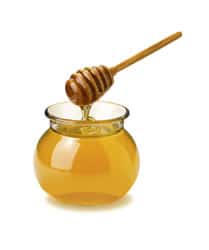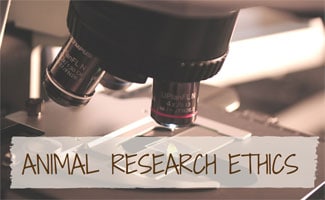Ways to Save The Bees
 Even though we tend to think of bees in terms of them always being the same kind, there are several different types of bees. The bees that are primarily in danger in this case are honey bees. And while the bee fearing population might not be too concerned about the issue, the fact is that most bees are not a danger to you unless they feel that you are a danger to them. You might also think of these bees differently once you realize that their work impacts about 90% of the world’s food supply.
Even though we tend to think of bees in terms of them always being the same kind, there are several different types of bees. The bees that are primarily in danger in this case are honey bees. And while the bee fearing population might not be too concerned about the issue, the fact is that most bees are not a danger to you unless they feel that you are a danger to them. You might also think of these bees differently once you realize that their work impacts about 90% of the world’s food supply.
Why Are Bees In Danger?
American farmers are ever fond of pesticides. Sometimes those pesticides get approved for use when they really should not have. One such instance is clothianidin. Clothianidin is a pesticide that is killing honey bees at an alarming rate. In fact, about 1/3 of the honey bee population is dying annually. When they are responsible for 90% of the food supply, you can see how these numbers are not adding up to the benefit of anyone.
What Do the Bees Have to Do with the EPA?
The Environmental Protection Agency (EPA) is responsible for monitoring the use of chemicals and how they impact the environment. Pesticides that are approved for use by the EPA are supposed to go through a screening process that includes independent testing, which clothianidin has not.
CREDO Action Petition
CREDO Action has created a petition online that addresses several issues, one of which has already been rejected by the EPA. The petition presents the idea that clothianidin was an imminent hazard to the environment, and specifically harmful to honey bees. This portion of the petition gained attention rapidly since there was a possibility of an immediate threat to the environment. The EPA dismissed this concept, claiming that there was not enough evidence to prove that there was an “imminent hazard”. However, there are other areas that have yet to be addressed by the EPA. There is still time to let the EPA know what the public thinks of the decision as well as what the public thinks of the other allegations concerning saving the bees and clothianidin use specifically.
Misbranded Clothianidin
Pesticides or other chemicals and other products that contain clothianidin should be labeled as such improper labeling will easily lead to misuse of the product as well as a lack of safety concerning the product. Branding and labeling fall into the realm of the EPA guidelines and because of that, the EPA can discontinue use of the chemical based on the lack of inappropriate labeling practices.
Should Clothianidin Have Ever Been Approved?
Every chemical that is sold has to meet the standards of its category and use based on EPA criteria. This petition claims that those standards have never been met and that the chemical should never have been registered in the first place. One of the items to be met would be independent testing, something which has never been done with clothianidin.
Endangered Species Act Obligations
The Endangered Species Act was put forward to protect endangered species and prevent species that were in line to be endangered from ever actually being endangered. Honey bees may be in need of their protection, but the facts need to be presented as part of the effort to end the use of this chemical.
What You Need to Present Your Case
While you are certainly free to make any type of comment in the way of your opinion concerning the use of this pesticide, those comments without basis will do little to further the effort. What the EPA is really looking for is evidence. They cannot simply take a product off the shelf without having some factual based evidence to back up their actions.
Think of this as an open court of law where citizens are able to come forth and produce facts to support a case. In this case, the facts must be in cohesion with the issues addressed in the petition. If the EPA can see that there are enough facts present to warrant taking action where this pesticide is concerned, they will be able to do so without any problem. But first, they must have the facts to do so.
Sign The Petition
Take a minute and sign the Change.org petition. If you wish to take a stand against the use of this harmful pesticide and make an effort to protect and save the bees, then you need only bring your evidence to the comments. Your opinion will not suffice. If you can pick just one of the issues that are presented and find evidence that will prove that the issue presented in the petition is a valid issue that violates at least one of the laws that govern the EPA and their approval of the use one pesticides, then you will have proven your case and the EPA will have to follow the law and remove this dangerous chemical from the shelves and from being combined with other chemicals.
Why You Should Care About Honey Bees
While many people understand that certain bees are in danger and they understand that pesticides have an impact on the world’s insect population, few understand why they should care about honey bees. Below we will take a look at some of the reasons why the disappearance of honey bees should concern you.
Pesticides Are Our Doing
With the recent belief that pesticides are what is causing Colony Collapse Disorder in honey bee hives across the globe there should be a certain degree of responsibility felt by humankind. Whether you are the farmer who sprays the pesticides that kills the bees or whether you are the purchaser of the farmers wares who supports their pesticide use you are equally responsible. Certainly not many people concern themselves with accountability for the disappearance of the honey bees but perhaps this next tidbit will change your mind.
Pesticides Are Bad News
Another reason you should stand up and pay attention to what is going on in the honey bee world is because the use of pesticides is all around us. If it is true that such a considerable loss of the honeybee population can be put down to the use of pesticides being built up in bee hives, one has to wonder just what these pesticides are doing when they build up in our own systems. There are two current theories as to how pesticides play a role in Colony Collapse Disorder. The first of which is that these pesticides are carried back to the hive where they gradually build up and affect each new generation of bees to where they poison the entire hive and result in colony collapse disorder. The second belief is that these pesticides are interfering with a bee’s ability to orient itself back to the hive after pollination. Without its hive the honey bee dies. This second theory could be why in colony collapse disorder the colonies are found barren rather than full of dead bees. Whichever theory you prescribe to, both point to just how devastating pesticides can be. While some of you may not care about Colony Collapse Disorder or what is causing it, you should care about the implications that these pesticides could have in our own future.
Bees Support Our Economy and Provide Us Food
We’re not talking about bees with shopping baskets here, but we are talking about the $39.6 billion that bees contribute annually to the global economy. With honey bees on the drastic decline that’s a large chunk of financial support that many areas of the globe could use right about now. Just how do bee’s come to be responsible for $39.6 billion in global contributions? According to recent statistics, approximately one-third of everything we eat depends upon honeybee pollination – that is where the $39.6 billion figure comes from. Approximately ninety commercial crops around the world depend upon honeybee pollination, some of which include most of our fruits and vegetables, cotton and coffee. Without the honeybee there is no pollination (or at least pollination is limited to what we can do utilizing technology) and as a result our foodstuffs and our economy suffers.
How You Can Help In Addition to Speaking Out Against Pesticide Use
Petitioning your local state representatives to promote the ban of these harmful and deadly pesticides is one place to begin, but there are other ways that you can speak and support honeybees as well.
Support Organic Farming
One of the best ways to help to support honeybee populations in addition to creating a healthier lifestyle for yourself is to support organic farming. Organic farming is farming in which no pesticides or dangerous chemicals are used in food production. Supporting organic farming lets other local farmers know that you will not tolerate the use of deadly chemicals in your foodstuffs. One of the biggest complaints that purchasers have about organic foodstuffs is the increased cost; however, in the long run is cheap food really that cheap? Eating the poisoned apple of pesticide can possibly lead to a plethora of health concerns in the future in which case that cheap food leads to thousands if not hundreds of thousands of dollars in medical bills. And that is only considering the medical costs and not the toll it takes physically and mentally. Is it really worth saving now to pay such a steep price later?
Educate Others
Educating others doesn’t necessarily mean being a know it all, but it does mean helping others to make informed decisions. If more people were aware of what was causing Colony Collapse Disorder perhaps they would think twice before supporting the use of pesticides that are killing pollinators of the vast majority of our food supply.
Support Local Beekeepers
 You can support local beekeepers by purchasing their honey from organic food stores. Supporting these local apiarists is good for a number of reasons but primarily it helps to ensure that they stay in business and support local bee populations. Additionally purchasing local honey means that you are supporting bees that are most likely pollinating local fruit and vegetable crops so you are also supporting your local farmers. Local honey also contains less allergens for many people because it contains pollen from local crops. Lastly, anyone who has tasted locally harvested honey will tell you that there is a significant difference in taste between mass-produced grocery store honey and locally harvested organic honey – it simply tastes better.
You can support local beekeepers by purchasing their honey from organic food stores. Supporting these local apiarists is good for a number of reasons but primarily it helps to ensure that they stay in business and support local bee populations. Additionally purchasing local honey means that you are supporting bees that are most likely pollinating local fruit and vegetable crops so you are also supporting your local farmers. Local honey also contains less allergens for many people because it contains pollen from local crops. Lastly, anyone who has tasted locally harvested honey will tell you that there is a significant difference in taste between mass-produced grocery store honey and locally harvested organic honey – it simply tastes better.
Do Your Part to Help Honeybees
So no matter how you help, it is important that you do your part to support local honeybee populations and organic farmers. Doing so can not only impact your own quality of life, but it can also impact the quality of life of those who will come after us. After all if we destroy the honeybee species completely, then what will our children’s children have to rely upon for foodstuffs aside from genetically modified items that carry with them many of the cautions that killed off the honeybees in the first place.



